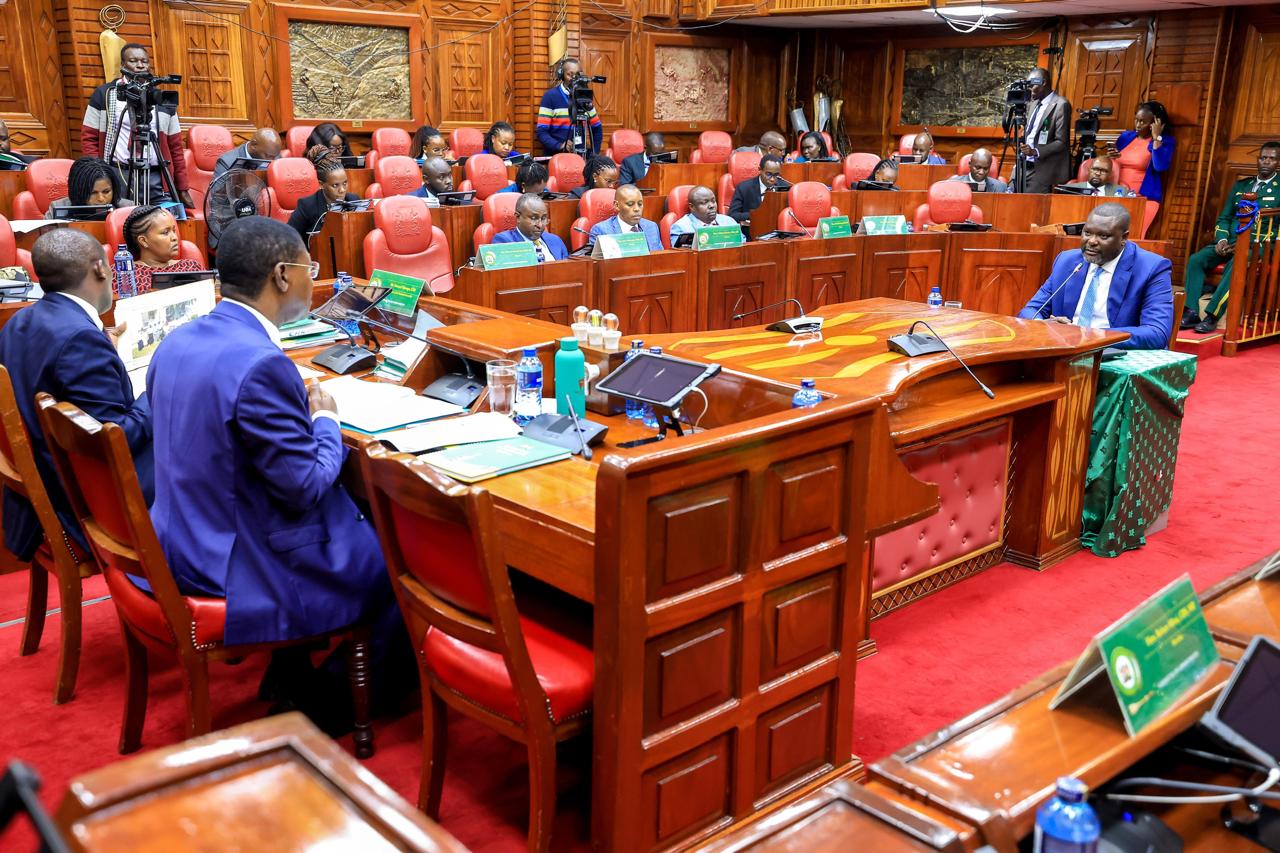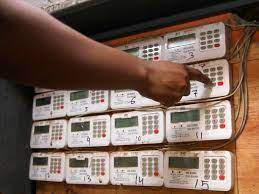Public Service CS nominee Ruku proposes splitting of TSC powers to curb graft

He acknowledged that he is on record for having spoken out about corruption in the promotion of teachers, citing personal knowledge of colleagues who have suffered through the process.
Public Service Cabinet Secretary nominee Geoffrey Ruku has proposed a review of the Teachers Service Commission (TSC) Act to separate the commission’s functions, including teacher recruitment and promotions.
Appearing before the National Assembly Committee of Appointments for his vetting on Monday, Ruku said the move will address claims of corruption within the education sector.
More To Read
- Bribery allegations, drama mar Mbeere North by-election
- Three senior NYS officials suspended in Sh2 billion scandal probe
- Jubilee Party to back opposition candidate in Mbeere North mini-poll
- Govt plans to scrap repeated fingerprint requirement for clearance certificates
- UDA holds unity retreat as nine aspirants jostle for Mbeere North mini-poll ticket
- CSs Ruku, Ogamba, Mugaa make key appointments across public institutions
He acknowledged that he is on record for having spoken out about corruption in the promotion of teachers, citing personal knowledge of colleagues who have suffered through the process.
“It is true. I’m on record saying teachers have information is corrupt, and it’s because I have many classmates who are teachers, both at primary school and also in secondary schools, and I know these my classmates have gone through what I’ve gone through the process of promotion,” Ruku said.
He added that some teachers are unable to get promoted on merit due to corrupt practices by certain officials.
“Some of them are not able to get promoted on merit. And in our sub-counties across the Republic, we have some corrupt individuals within the Teachers Service Commission; others are at the sub-county level, who ask for bribes so that teachers can be promoted, whether in primary schools or secondary schools,” he said.
Ruku said he felt compelled, as a representative of Mbeere North Constituency, to speak out against this malpractice, urging the TSC to take responsibility for the actions of its officers.
“I called out the Teachers Service Commission that the practice with some of their officers at the level of sub-county, they should be stopped,” he added.
Legislative changes
To address the issues, Ruku said if confirmed, he would recommend legislative changes.
“One is to look at the Act which operationalised the commission, so that we see whether the Teachers Service Commission, being an extremely huge institution, requires several directorates which are chaired and managed independently by probably three executive managers instead of one. For instance, promotion and hiring of teachers, and management of insurances,” he said.
When asked if he was aware that TSC is an independent Constitutional Commission and would therefore not fall under his jurisdiction if appointed, Ruku responded, “Yes, honorable chair, I’m aware. But also I’m aware as a Cabinet Secretary in charge of Public Service, service delivery—whether by police service, teacher service or judicial service, must be.”
Ghost workers
Ruku also addressed the persistent problem of ghost workers within the public service, which he described as a significant drain on government efficiency and resources.
“My definition of ghost workers, honorable speaker, is anybody who is employed by government offering public service, will report work and appears after 10 or so minutes. We have cases where doctors or clinic officers or even nurses report to work, and within 10 minutes, honorable speaker, are out of the dispensary, out of the hospital, to other clinics within the surroundings,” he said.
To counter this, Ruku said he would implement an integrated digital system across all government institutions.
“We put a system in place which can be able to link all the government institutions… Once you go to your place of work, we are supposed to know you have reported at what time, your output, and what time did you leave your workstation.”
He further accused public procurement officers of negligence, particularly in the management of government assets.
“We have procurement officers who have ensured government vehicles which are supposed to be disposed of are lying in parking yards for years, so government ends up losing huge amounts of money,” he said.
He pointed to Executive Order 2023, which placed the transformation of public service delivery under the Ministry of Public Service, as a key pillar in implementing the digital framework.
“Having a unified digital government framework will enable us to solve some of these challenges we are facing, as far as ghost workers are concerned. It will help us in cutting the cost and ensuring that service delivery is timely, effective, and cost-efficient,” he said.
On employment, Ruku pledged to uphold the values of equity, transparency, and fairness, as enshrined in the Constitution.
“I will serve the Republic of Kenya without fear and without favour. The issues of employment will be cut across. The face of Kenya must be seen as per our Constitution, as per Article 232.”
He emphasised that gthe overnment is not an employer by default, but a facilitator for job creation.
“Government is there to create enabling environment for job creation, especially for our young people,” he said.
He also promised to streamline public service processes, including business registration.
“At the moment, it takes about a week or so for a business to be registered. We endeavour to ensure it is registered within the same day so that we can be able to create more jobs within all the sectors of our economy,” he said.
In his financial disclosures, Ruku said his net worth stands at Sh377 million. This includes land and buildings worth Sh40 million, a family residence valued at Sh60 million, shares worth Sh250 million, vehicles worth Sh12 million, and Sh15 million in savings and Sacco deposits.
Top Stories Today











































